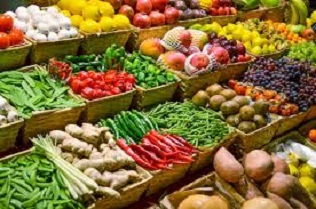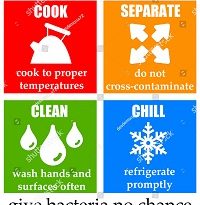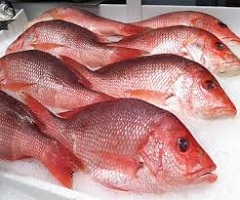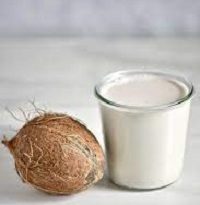Gluten-Free Foods: List of Nigerian Gluten-Free Foods
Gluten-Free Foods are not a popular topic because many of us do not know much about gluten and what a gluten-free diet is.

Besides our oven-baked and fried snacks, Nigerian foods are very healthy and mostly gluten-free. We don’t have good preservation culture so we eat almost all our foods and fruits fresh.
You can get freshly butchered meats and freshly cut vegetables and spices from the open market. Our native foods are gluten and wheat free except maybe the locally made agege bread; with which cornmeal can be switched.
Gluten-Free Foods should be safely consumed by anyone who has a gluten sensitivity or celiac disease.
Gluten-Free Foods – What is Gluten?
Gluten is a rare form of protein found in grains, such as barley, wheat, rye, and a hybrid of wheat and rye called triticale.
However, it is common in many foods including pasta, pizza, cereal, and bread. Gluten does not give any essential nutrients to the body.
The function of gluten is to assist foods such as cereal, bread, and pasta glue together or to hold their shape.
Gluten intolerance is characterized by adverse reactions to gluten. Celiac disease is the most severe form of gluten intolerance.
Gluten intolerance or non-celiac gluten sensitivity, have some of the same symptoms as celiac disease but is a less severe condition.
People also, sometimes, mistake gluten intolerance for a wheat allergy.
A wheat allergy can be fatal, as some symptoms can damage breathing or cause a loss of consciousness, which is not the case with celiac disease or gluten intolerance.
The signs of gluten intolerance are less severe than celiac disease or a wheat allergy, and people know much less about the condition.
What is a gluten-free food?
Gluten-free food is a diet that consists of gluten-free foods. A gluten-free diet assists in managing symptoms of celiac disease and other medical conditions associated with gluten.
The Question Is: Who Are The Gluten-Free Foods For?
A gluten-free diet is for mainly two main categories of people namely:
- People with celiac disease
- People with gluten sensitivity
Symptoms of this illness include Headaches, Bloating, or too much gas in the abdomen; Abdominal pain, Fatigue, Depression Anxiety, Skin Rashes called dermatitis herpetiformis, constipation, and diarrhea.
Why Should You Go Gluten-Free?
People follow a gluten-free diet for many reasons: In people with celiac disease, gluten triggers an immune response that damages the lining of their small intestine.
This interfere causes inflammation in the small intestine and makes it hard for the body to absorb nutrients in food which leads to other problems like osteoporosis, infertility, nerve damage, and seizures.
List of Nigerian Gluten-Free Foods
Fortunately, several of our Nigerian foods are naturally healthy and mostly gluten-free. The majority of our Nigerian swallows and staple foods are gluten-free.
It’s possible to enjoy a wide range of mouthwatering, healthy meals without observing any kind of celiac symptoms or gluten sensitivity.
So here is a list of Gluten-free foods you can eat, foods you should stay away from, and hidden ingredients you should be weary of.
List of Nigerian Foods That Contain Gluten
You should avoid them if you have celiac disease or gluten sensitivity.
- Semolina/Semovita
- Pastries (unless marked gluten free)
- Wheat
- Cookies ( unless marked gluten free)
- Cupcakes (unless marked gluten free)
- Bread (unless marked gluten free)
- Pasta (unless marked gluten free)
- Indomie
- Shawarma
- Flour
- Malt
- Barley
- Wheat germ
- Rye
- Bulgar
- Couscous
- Farina
- Sausages
- French fries
- Processed cheese
- Mayonnaise
- Ketchup
- Malt vinegar
- Soy sauce
- Nondairy creamer
- Bacon
- Hot dogs
- Ice cream
- Syrups
- Wheat grass
- beer
- cereals ( unless marked gluten free)
Gluten-free foods
- Bananas
- Milk
- Millet
- Olive oil
- Asparagus
- Coconut oil
- Avocados
- Nuts
- Tomatoes
- Grapefruit
- Green Beans
- Cocoa
- Cucumber
- Mushrooms
- Eba – Garri
- Dates
- Kiwi
- Lemons
- Limes
- Papaya
- Plantains
- Water lemons
- Vegetables
- Eggplant
- Guava
- Lettuce
- Onions
- Garlic
- Cabbage
- Beans
- Honey
- Herbs
- Seeds
- Potatoes
- Brown rice
- Almond flour
- Flax-seed
- Turkey
- Yams
- Oats (must be certified gluten free)
- Egusi soup, vegetable soups, okra soup (most Nigerian soups are gluten free)
- Vegetables
- Fruits
- Amala
- Meats
- Chicken ( that is not breaded )
- Fish (that is not breaded)
- Pounded yam
- Fufu
- Nuts, seeds, pulses
- Butter, cooking oils, margarine
- Buckwheat, corn flour, maize, corn, sago, arrowroot, tapioca, potato flour
- Natural yogurt
- Cream, etc.
Summary
These lists are not all the gluten-free foods, but this serves as a guide to enable us to make better food choices.
Make sure you consume more natural foods than processed and packed foods to stay healthy and safe.


